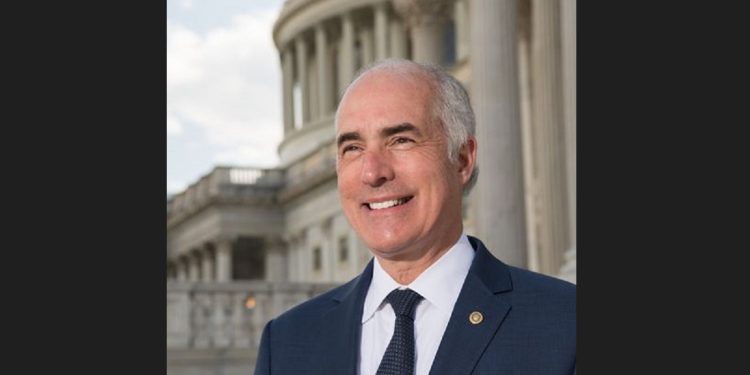Washington, D.C. – Thursday, U.S. Senator Bob Casey (D-PA), chairman of the U.S. Senate Special Committee on Aging, and Senator Chris Murphy (D-CT) introduced the Addressing Social Isolation and Loneliness in Older Adults (SILO) Act.
As many older Americans face a crisis of social isolation and loneliness, which was exacerbated by the COVID-19 pandemic, the bill would help improve social connection for older adults and adults with disabilities by providing funding for Area Agencies on Aging (AAAs) and community-based organizations.
“The COVID-19 pandemic showed us all just how devastating social isolation can be for our mental and physical health,” said Casey.
“However, for older Americans and people with disabilities, isolation and loneliness have long been serious issues.
The Addressing SILO Act will fund new programs to improve social connection and reduce loneliness among older Americans and help ensure that Americans do not have to spend their golden years isolated and alone.”
“There are tons of local organizations already doing the important work of helping older Americans and adults with disabilities – two groups most at-risk for social isolation – combat loneliness, and we should be in the business of making sure these programs reach as many people as possible. This legislation would create a new grant program dedicated to supporting community-based organizations focused on helping their neighbors feel a little less alone. It’s a simple way the federal government can be a part of the solution,” said Murphy.
As of 2019, there were 54 million adults aged 65 and older in the U.S. and a quarter of those were socially isolated. Life transitions and disruptive events, like retirement, the loss of a spouse or friends, or children moving away put older adults at higher risk for social isolation and loneliness.
Social isolation and loneliness pose significant public health risks, particularly for older adults, contributing to poor health outcomes, such as declines in mental or cognitive health and the onset or worsening of chronic diseases, like diabetes and cardiovascular disease.
Social isolation not only impacts health outcomes and overall quality of life, but also it carries a heavy price tag. Social isolation among older adults accounts for an estimated $6.7 billion in annual excess Medicare spending.
The Addressing SILO Act would improve social connection and reduce isolation and loneliness among older adults and adults with disabilities through grants and training programs for Area Agencies on Aging (AAAs) and community-based organizations. Specifically, the bill provides $62.5 million in annual funding to support AAAs and community-based organizations in:
- Providing training for their staff to better address and prevent social isolation and loneliness;
- Conducting outreach to individuals at-risk for social isolation and loneliness;?
- Developing community-based interventions to mitigate social isolation and loneliness;?
- Connecting at-risk individuals with social and clinical supports; and??
- Evaluating the effectiveness of the programs developed and implemented through the grants.??
You can read more about the Addressing SILO Act here.




